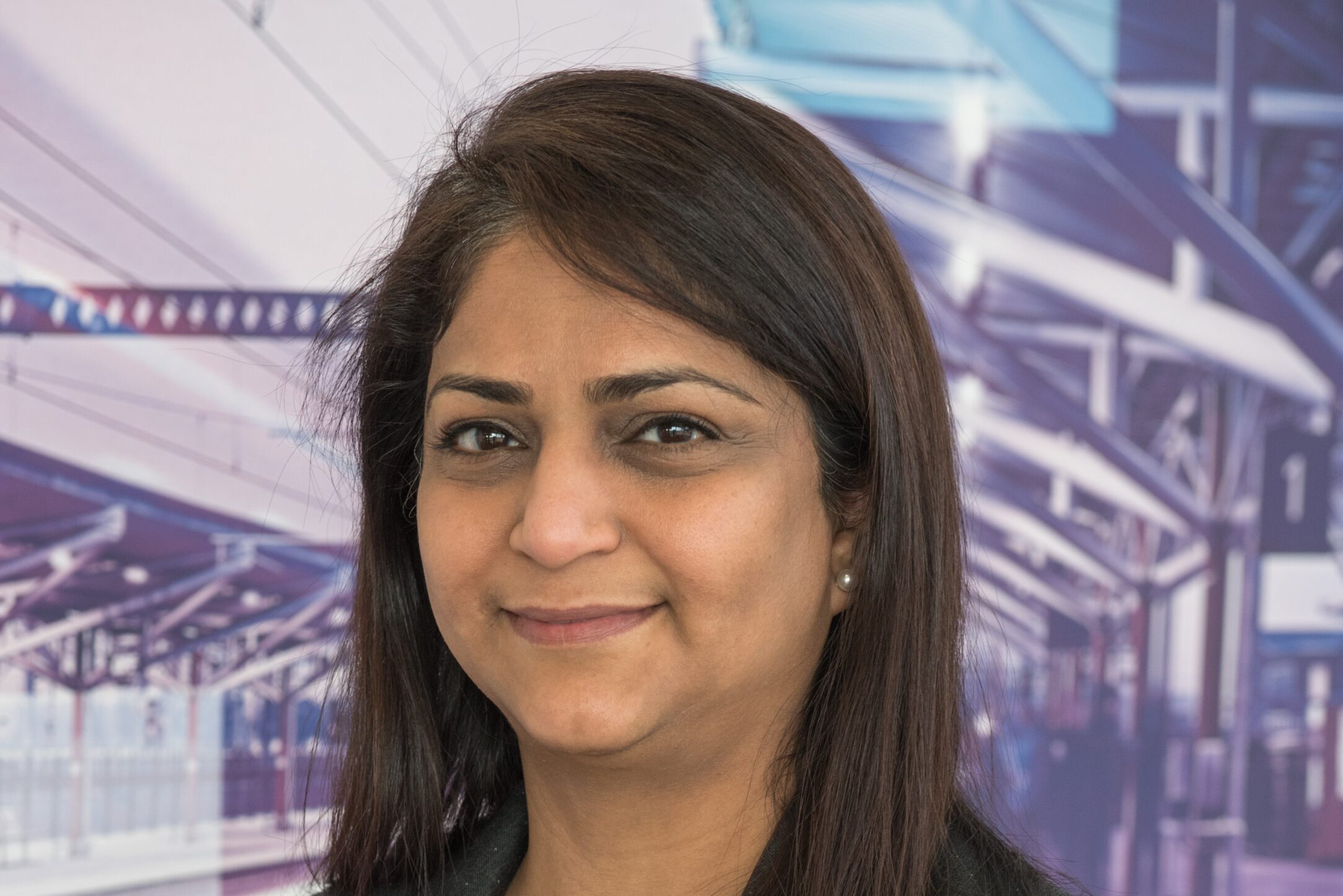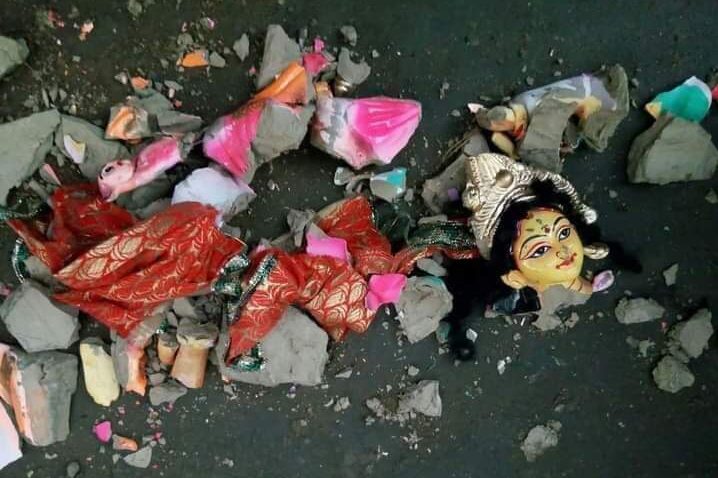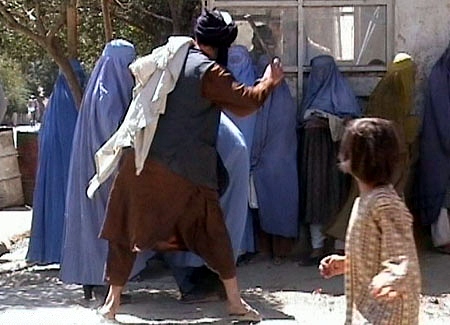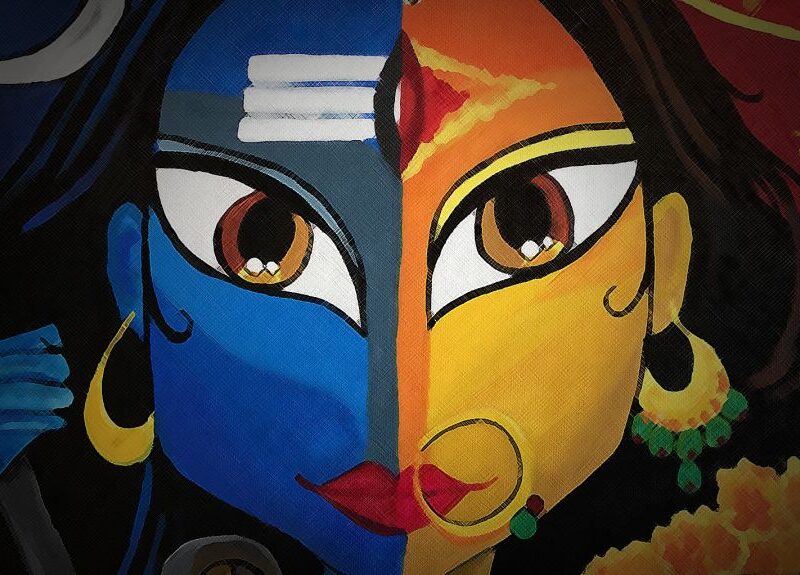
The Taliban’s takeover of Afghanistan has raised many issues about what the status of women’s rights will be under the regime. After all, the last time the group was in power, women were denied education, banned from employment, forced to wear burqas, and at risk of being beaten, tortured, or executed if they left home without a male chaperone.
Because the Taliban’s influence has often extended beyond Afghanistan, specifically to regions such as Pakistan where women’s rights have also been restricted, the situation is all the more concerning.
The following is an interview with Dr. Rubina Greenwood, a human rights and women’s rights activist who grew up in Pakistan. As Chairperson of the World Sindhi Congress, a human rights education and advocacy organization for Sindh and Sindhis, she is amongst the most qualified to speak on these issues.
HAF: How did you get involved in human and women’s rights work? Was there a particular event that sparked your interest, and if so, what? What has the journey of such work been like, and where has it led you?
Dr. Greenwood: My involvement in human and women’s rights work was not sparked by a specific event or incident, but by growing up in the 80s in Pakistan.
In the 80s, Pakistan was under the yoke of the dictatorial martial law of General Zia, whose sole mission was to Islamize Pakistani society and Sindhi society. I witnessed institutionalized injustices and violations of fundamental human rights of Sindhis, and particularly against Sindhi women.
While I was growing up, I was surrounded by the pain and miseries of my people in Pakistan and especially women in general. Not a single day has passed in my life (in Sindh or since I moved to the UK), where I have not read or heard of a crime against women and/or against my people of Sindh.
Coming from an educated family, I always wondered that if I had to struggle to go to university, what other girls would need to do to have this fundamental right in the ever-growing conservative society of the late 1980s and 90s.
I started my activism during my university time in Sindh. It was around the protection and safeguarding of the secular, multi-religious culture of Sindhis, which was targeted by the Pakistani state with the establishment of madrassas and radicalization of our academic courses. We Sindhis are more vulnerable as we are a multi-religious nation. The introduction of these radical beliefs undermines and destroys the core characteristics of the Sindhi nation and creates internal conflicts.
When I graduated with an engineering degree, I was questioned about being a Sindhi and having plans to work in the capital city of our province Sindh, Karachi, since I did not possess the proper Urdu accent required to work there.
When I was leaving the country in the late 90s, I witnessed radicalization, and I experienced how my Sindhi Hindu female friends became nervous about going out or meeting Muslim friends. During the military rule under General Zia, kidnapping of Hindus, destruction of temples, and marginalization of our indigenous tribes were on the rise. There was a deliberate blind eye of the judiciary and police on these cases. A similar situation continues to date! Many of our Sindhi brothers and sisters have migrated to other countries, and indigenous tribes remain under further exploitation of the Pakistani state.
When I came to the UK and took an interest in activism internationally, I found that the liberals or progressive people of Pakistani heritage who were and remain active in human rights activities in the UK, US, or EU were only covering or talking about the media-popularized issues, e.g., Kashmir issue. No one was raising the voice for Sindhis, indigenous tribes of Sindh, and particularly Sindhi Hindus, who are under constant threat from Pakistan.
Sindhis and Sindhi Hindus, including the indigenous tribes of Sindh, are under constant threat because of our existence as a united and strong nation that will not let the Pakistan military plunder Sindh’s resources, as Sindh currently contributes more than 69 percent of the total budget. Therefore, it is in their interest to weaken our Sindhi nation, and the Pakistani military uses religion to divide us. Not only that, our presence as a multi-religious nation within Pakistan doesn’t make Pakistan a puritan state.
One of the critical challenges my colleagues and I have is that the UK’s major political parties are very much influenced by the Pakistani Diaspora, which the Pakistani establishment influences. There is a big Pakistani Muslim voting bank (many of Kashmiri descent) that drives the policies. Though all human rights issues should be treated equally, Sindhis or Sindhi Hindus are hard to draw attention to in the UK, EU, and even in the US unless we align our cases with other oppressed communities, e.g., Ahmadis and Christians.
I still feel that I have a duty and responsibility to be a voice of people who are not being heard. I have my professional day job and family to prioritize. However, the pain and suffering of my people, and duty to my gender, always comes as an equal priority as my other life matters.
I am the Chairwoman of the World Sindhi Congress, one of the only organizations outside Sindh that has been continuous since the late 80s in raising their voice against the Pakistani establishment’s atrocities in Sindh, and against the people of Sindh. WSC was one of the first organizations which raised the case of Sindh in the UN and other international platforms. WSC was the first organization to raise the violence against Sindhi Hindus on global platforms. We see violence against Sindhi Hindus as our national cause, and our existence is connected with our Sindhi Hindu brothers and sisters.
I also founded the International Sindhi Women Organization (ISWO) in the UK and US, mainly focusing on women’s rights issues in Sindh. I needed to set up a dedicated Sindhi women’s organization because other women’s rights groups of Pakistani heritage were not addressing issues of women from Sindh. That became apparent when I wanted to raise Rinkle Kumari’s abduction in the UK for her protection. Many prominent women organizations didn’t even acknowledge the violence we were talking about. Now, ISWO is one of the foremost voices outside Sindh for Sindhi women’s rights. WSC has submitted reports in 2012 and then again in 2018 on the forced conversion of Sindhi Hindus girls as part of Universal Periodic Review.
HAF: The Taliban’s victory in Afghanistan is an enormous propaganda boost for Islamists worldwide. How do you think the Taliban’s archaic views of women’s roles in society and their suppression of women’s rights could further impact women’s rights in Pakistan, where they are similarly limited, and extremist groups linked to the Taliban are gaining ground?
Dr. Greenwood: It is an enormous tragedy for Afghanistan. Their society has been suffering from war and interference for the last four decades or so. The Taliban’s victory is a bad omen for the women in Afghanistan. Their traditionalism, Wahhabi ideology, and patriarchal setup, will never give simple fundamental rights to women. Non-Pashtun and non-Sunni minorities inside Afghanistan will significantly suffer, too.
There is no doubt that Pakistan has and will need to host formally and informally migrants from Afghanistan. History shows how the Pakistani military used those 80s Afghan migrants to their advantage by turning them into Mujahideen to continue instability around the globe, and mainly in Afghanistan. However, they also used them against their people in Pakistan to suppress and oppress progressive groups and communities. This time, Pakistan has better and improved facilities for madrassas and missionaries, which will be actively used by the Pakistan military for new migrants, and will be used as their support and taking advantage of their vulnerable situation. This will create a more radicalized society and another militant support system for the Pakistani military and the Islamic Council of Pakistan. They seem to have veto power over Pakistan’s national and provincial parliamentary and legislative powers.
This strengthened religious groups in Pakistan, who are fully sponsored by the Pakistani military. Women will have more challenges getting any favorable laws or bills passed through the parliament for our basic rights. Society will be less tolerant towards women’s fundamental human rights of education and the right to live as free human beings in Pakistan.
The international community must see the victory of the Taliban as the victory of the Pakistani military, full stop. Since the 80s, it was Pakistan’s interest to keep Afghanistan as their proxy colony, and the Taliban’s success makes Afghanistan a client state of Pakistan. Pakistan has more than 35,000 religious missionaries where the Taliban trained and educated those who are currently with the Taliban in Afghanistan. Unfortunately, not many Taliban have any historical understanding of Afghanistan, as they are a foreign-inspired (i.e., Pakistan-inspired) invasion of Afghanistan.
The victory of the Taliban is the victory of the militant version of Islam to control all progressive norms of society that Pakistan, supported by China, uses to keep control in this region. This control, suppression, and oppression of progressive people make the Pakistani military rich and more prosperous. Nowhere else in this world does any military have as many assets as the Pakistani military has. This wealth of the Pakistani military is generated by many sources. That includes the illegal land grabbing in Sindh, control over natural resources of Sindh and Balochistan, selling to large international investors, and supporting drug and weapon trafficking via Afghanistan. The victory of the Taliban in Afghanistan will make their business desires much more accessible. But the Pakistani military will gain financial benefits and a radicalized society that will not question them and their illegal doings within Pakistan and oppression of their own people. The Pakistani military is not for the people; it’s an enterprise like the East India Company.
HAF: Cases have been reported in recent months of women and girls of minority religions in Pakistan being abducted, forcibly converted, forcibly married, and abused. These are not isolated occurrences, as at least 1,000 Hindu and Christian girls in Sindh are abducted and forcibly converted every year, according to human rights reports. To what extent are these incidents religiously motivated? And are the individuals or groups involved ideologically aligned with the Taliban? What role, if any, has the Pakistani state played in these cases, and how can they curb them?
Dr. Greenwood: The forced conversion of Sindhi Hindu girls is a politically motivated action against the Sindhi people. This is fully supported by Pakistani state actors who are ideologically aligned with the Taliban. If you look, most of the conversions are happening in the regions where there are particular types of madrassas and particular types of religious practices are happening, e.g., of shrine Bharchundi Sharif.
I think the forced conversion of our Sindhi Hindu daughters is an international issue, as the state, which is supposed to be the protector of its people, is directly involved in these crimes by supporting these madrassas and supporting people who are engaged in these conversions openly at the state level.
These girls don’t get any protection from courts, police, or the state. In my view, I have no trust or expectation that Pakistan can ever give protection to our daughters because a) they are Sindhis and b) they are Hindus. As I said, it is a deliberate act and involvement of the Pakistan state in this matter to destabilize and terrorize our Sindhi Hindu community to weaken us as a united Sindhi nation.
I am highly disappointed by the lack of the international community’s pressure on Pakistan on this matter. Cases of other minorities are being handled by many NGOs in Europe and UK and have resulted in some success stories — e.g., Malala Yousafzai being in the UK and Asia Bibi being in Canada — but our hundreds of Sindhi Hindus girls are living with their abductors and rapists. Not a single case has been picked up by mainstream international NGOs for various reasons.
HAF: What do you think the US could have done differently in their withdrawal from Afghanistan that would have better ensured the safety of women in not just Afghanistan, but Pakistan as well?
Dr. Greenwood: The US should see the Taliban as a Pakistani project and should have put more pressure on Pakistan. Not involving the various Afghan society actors in talks was also a great mistake.
We have to treat the disease at the root; the cause and rise of Taliban and radicalization are created and nourished by the Pakistani military. So it’s time that the international community takes serious measures to control the ever-growing ambitions of the Pakistani military, which China is also supporting.
Sindhis and Balochs may be more prone to be partners to the US because they greatly oppose Pakistan’s Military, and are the victims of their oppression, and see Pakistan as a hegemonic state.
HAF: What are the most important actions that need to take place at this point to help curb the violence against women in Afghanistan and Pakistan, and who needs to take them?
Dr. Greenwood: The safety of women in both countries should be treated as an international matter. It is time that the international community intervene and put clear conditions for any relationships with Pakistan until Pakistan demonstrates continuous and proactive measures to protect women, as monitored by an independent international body. As often in the UN, Pakistan has promises and commitments to protect women’s rights, but violence against women continues to rise in Pakistan every year.
International aid to Pakistan and other trade subsidiaries must be stipulated to the conditions of human rights and rights of women. The US, the UK, and the EU aid and influence other international trade and banking institutions. They can use their power. Other countries can use their diplomatic impact on Pakistan. Many developing countries in Latin America, Africa, and Asia should take a hard look at Pakistan’s support to terrorism inside and outside its border as a real threat to international security and peace, and must not support Pakistan in UN and other international forums unless it changes its policies and practices.
HAF: If the US intervened in Afghanistan again, it would most likely be spurred by if the Taliban allowed international terrorism to flourish, and not because of human and women’s rights issues. What role, if any, do you think the US should play in human and women’s rights issues in other countries going into the future? Do you believe such issues should garner the US’ involvement the way terrorism does? Why or why not?
Dr. Greenwood: As a global leader, the US has an interest in most parts of the world, and so unrest or lack of peace in any region will impact the US one way or another.
The term “terrorism” is specifically used herein to mean the rise of jihad, but “terrorism” doesn’t have one specific reason to happen across borders. Any unrest anywhere can result in terrorism and regional and global insecurity crisis. Therefore, it is essential and timely that the US should support progressive groups in Pakistan and perhaps have an open dialogue with nations of Pakistan about if they want to live as one Pakistan as a single entity.
The Pakistani military has become a monster for their people, and internationally, and this needs to be controlled and stopped. War is not the only way to resolve this. There are many peaceful ways to take power from the Pakistan military and their puppet democratic parties and give strength to the entire people of Pakistan.








































